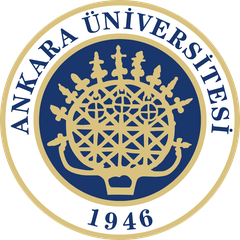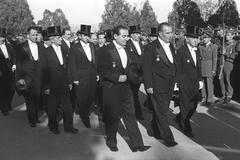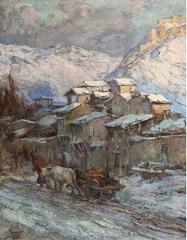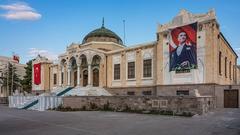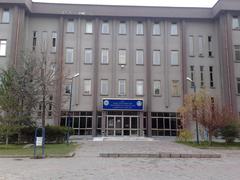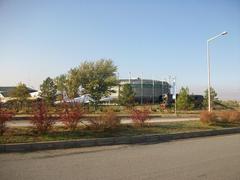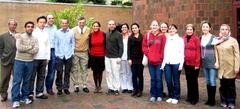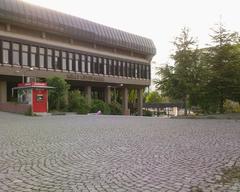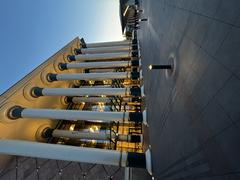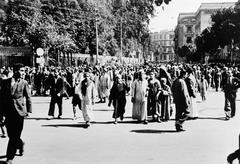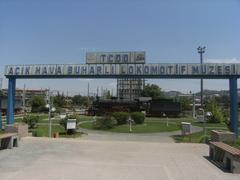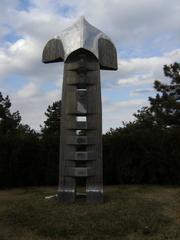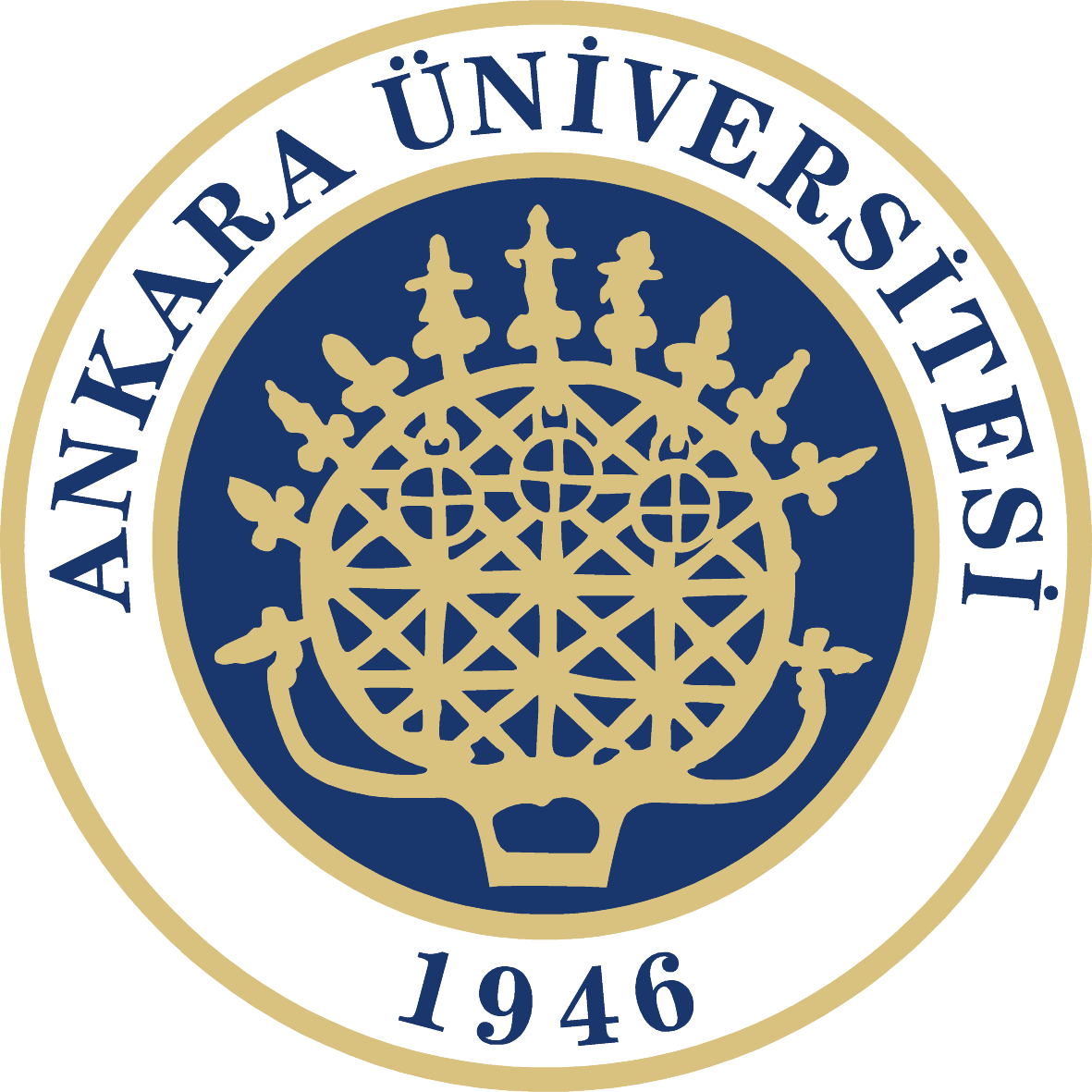
Visiting Ankara University, Ankara, Turkey: Tickets, Hours, and Attractions
Date: 14/06/2025
Introduction: The Historical and Cultural Significance of Ankara University
Ankara University stands as a cornerstone of Turkey’s educational legacy and its journey toward modernization. Founded in 1946, with origins linked to the formative years of the Turkish Republic, the university’s campuses are architectural and cultural treasures. They embody Turkish Republican modernist design and house faculties that have played pivotal roles in Turkey’s political, legal, medical, and cultural development. For visitors, the university offers a compelling blend of historic buildings, lush green spaces, and cultural venues—making it a must-visit destination for those interested in history, architecture, and academic excellence. This guide details everything you need to know about visiting Ankara University, including opening hours, ticketing, accessibility, tours, and nearby attractions. For more in-depth information, consult the official Ankara University website.
Table of Contents
- Discovering Ankara University: An Overview
- Campus Layout and Notable Architecture
- Key Faculties and Academic Landmarks
- Museums and Cultural Centers
- Visitor Information: Hours, Tickets, and Tours
- Green Spaces and Art Installations
- Nearby Attractions and Transportation Tips
- Frequently Asked Questions (FAQs)
Discovering Ankara University: An Overview
Ankara University is not only a premier educational institution but also a site of major historical and cultural importance in Turkey’s capital. Its founding reflects the transformation of Turkish society through education and modernization. While exploring the campus, visitors are treated to a unique journey through Turkey’s academic and architectural evolution.
Visiting Hours, Tickets, and Accessibility
- Hours: Most campuses are open to the public from 8:00 AM to 6:00 PM, Monday through Friday. Museums and specific faculties may have different hours, typically from 9:00 AM to 5:00 PM. Always confirm on the official website before your visit.
- Tickets: Entry to the university’s outdoor areas and most buildings is free. Some special exhibitions, concerts, or events may require tickets or reservations.
- Accessibility: Modern buildings are wheelchair accessible, with ramps and elevators. Assistance services are available upon request. Older structures may have limited access; contact the visitor office for details.
Getting There: Transportation Tips
- Metro: The closest metro stops are “Kızılay” and “Ulus,” both within walking distance of major campuses.
- Bus: Several city bus routes serve the university; check local transit maps for up-to-date routes.
- Car: Parking is limited; public transportation is advisable during busy periods.
Campus Layout and Notable Architecture
Ankara University’s campuses are distributed across several city districts, each featuring distinctive architecture and academic significance (Ankara University History).
- Sıhhiye Campus: Home to the Faculty of Medicine and the landmark Morphology Building (1967), this campus highlights Turkish modernist design (Faculty of Medicine History).
- Cebeci Campus: Features lush green spaces and significant early Republican buildings, hosting the Faculties of Political Science, Law, and Communication.
- Tandoğan Campus: Contains the Faculties of Science and Engineering, known for state-of-the-art labs and research facilities.
- Beşevler Campus: Houses the Faculty of Educational Sciences and the State Conservatory, a vibrant center for culture and the arts.
- Gölbaşı Campus: Located in a verdant setting, this campus is home to the Faculties of Fine Arts and Applied Sciences.
Each campus is easily accessible via Ankara’s public transportation network (Ankara University Wikipedia).
Key Faculties and Academic Landmarks
- Faculty of Political Science (Mülkiye): Established in 1859 and moved to Ankara by Atatürk, this faculty is renowned for its role in Turkish political and administrative education.
- Faculty of Law: Founded in 1925, instrumental in shaping the Turkish legal framework.
- Faculty of Medicine: A leader in medical training since 1945, offering educational tours (Faculty of Medicine History).
- Faculty of Language, History, and Geography: Founded in 1935, it frequently hosts exhibitions and academic events.
Many faculties are adorned with statues, commemorative plaques, and well-maintained gardens, reflecting Ankara University’s rich history.
Museums and Cultural Centers
- Museum of the Republic (Cebeci Campus): Chronicles the history of the Turkish Republic and Ankara University through artifacts, photos, and documents.
- Veterinary Medicine Museum: Highlights milestones in Turkish veterinary science.
- State Conservatory Concert Hall (Beşevler Campus): Hosts concerts and performances, often open to the public or at a nominal fee.
These institutions provide unique insights into Turkey’s educational and cultural evolution (Ankara University Official Site).
Visitor Information: Hours, Tickets, and Tours
- General Hours: Campuses are typically open from 8:00 AM to 6:00 PM; museums from 9:00 AM to 5:00 PM, closed on public holidays.
- Entry Fees: Most areas are free; some museums and events may charge a small fee.
- Guided Tours: Available during academic festivals, national holidays, or by appointment. Advance booking is recommended (Ankara University Official Site).
- Accessibility: Most modern buildings are accessible; contact the visitor office for specific requirements.
Green Spaces and Art Installations
- Gardens and Courtyards: Every campus features landscaped areas ideal for relaxation.
- Sports Facilities: Available to visitors during open days and special events.
- Nearby Gençlik Park: A sprawling city park near Sıhhiye and Cebeci campuses, popular for walking and recreation (Tripcrafters: Gençlik Park).
- Public Art: Statues, murals, and commemorative installations add further cultural value to the campus environment.
Nearby Attractions and Transportation
Ankara University’s central location makes it easy to combine your visit with other notable sites:
- Anıtkabir: The mausoleum of Atatürk, symbolizing Turkish independence (Visit Turkey: Anıtkabir).
- Museum of Anatolian Civilizations: Houses artifacts from Turkey’s ancient past (Tripcrafters: Museum of Anatolian Civilizations).
- Kocatepe Mosque: Ankara’s largest mosque, open for visits outside prayer times (Miss Tourist: Kocatepe Mosque).
- Tunalı Hilmi Avenue and Kızılay: Lively districts for shopping and dining (One Day Itinerary: Tunalı Hilmi Avenue).
All these attractions are easily accessed by public transport, taxi, or ride-sharing services.
Frequently Asked Questions (FAQs)
Q: What are Ankara University’s visiting hours?
A: Campuses are open from 8:00 AM to 6:00 PM. Museum hours are usually 9:00 AM to 5:00 PM. Always check specific sites before your visit.
Q: Is there an entrance fee?
A: Entry to the campuses is free. Some museums or events may charge a small fee.
Q: How do I arrange a guided tour?
A: Contact the university’s visitor office to book tours, especially during festivals or by appointment.
Q: Are the campuses wheelchair accessible?
A: Most modern buildings are accessible. For additional needs, contact the visitor office.
Q: What is the best way to reach the university?
A: Use Ankara’s metro or bus system, or taxis and ride-shares for convenience.
Plan Your Visit
Ankara University offers a harmonious blend of history, culture, and academic achievement. Whether you are interested in historical faculties, cultural events, or peaceful green spaces, there is something for everyone. For the latest updates on hours, tours, and events, visit the official Ankara University website.
Enhance your experience by downloading the Audiala app for guided tours and real-time updates. Follow us on social media for announcements on festivals and lectures.
Introduction to Anıtkabir
Anıtkabir, the mausoleum of Mustafa Kemal Atatürk, is one of Ankara’s most iconic landmarks. Completed in 1953, it stands as a symbol of Turkish independence and national pride, drawing millions of visitors each year (Anıtkabir Official Site).
Highlights
- Hall of Honor: The final resting place of Atatürk.
- Peace Park: Surrounding green space with commemorative sculptures.
- Atatürk and War of Independence Museum: Exhibits and documents chronicling Atatürk’s life and the founding of modern Turkey.
Visiting Hours and Admission
- Hours: Open daily (except Mondays) from 9:00 AM to 5:00 PM, with longer hours in summer.
- Fees: Admission is free.
- Guided Tours: Available for individuals and groups; book via the official site or onsite.
Accessibility and Getting There
- Location: In Çankaya district; accessible by bus, taxi, or metro.
- Facilities: Accessible pathways and facilities are available for visitors with disabilities.
Tips
- Arrive early to avoid crowds.
- Dress modestly and maintain silence in the mausoleum.
- Photography is allowed without flash or tripods.
Summary and Travel Tips
Visiting Ankara University offers a unique opportunity to experience the heart of Turkey’s academic and cultural heritage. The university’s accessible campuses, free entry, and proximity to major attractions such as Anıtkabir, the Museum of Anatolian Civilizations, and Ankara Castle make it a highlight of any Ankara itinerary. Guided tours, special events, and exhibitions provide added value, while thoughtful amenities ensure a welcoming experience for all visitors.
For up-to-date information and resources, refer to the official Ankara University website.
References and External Links
- Ankara University Official Website
- Ankara University Wikipedia
- Faculty of Medicine History
- Anıtkabir Official Site
- Tripcrafters: Gençlik Park
- Visit Turkey: Anıtkabir
- Tripcrafters: Museum of Anatolian Civilizations
- Miss Tourist: Kocatepe Mosque
- One Day Itinerary: Tunalı Hilmi Avenue
